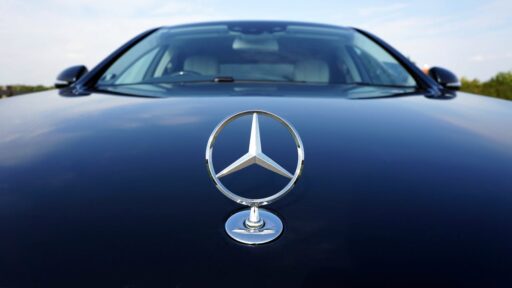As one of the world’s leading luxury automobile manufacturers, Mercedes-Benz Group is deeply committed to sustainability, integrating environmentally responsible practices across its operations. The company’s 2023 Sustainability Report highlights a strategic focus on reducing its carbon footprint, embracing circular economy principles, and leveraging advanced technologies like artificial intelligence (AI) to enhance supply chain efficiency. Mercedes-Benz is also exploring innovative solutions in waste-to-energy technologies to optimize resource utilization. By implementing these initiatives, the company aims to create long-term value for stakeholders while reducing its environmental impact. This article explores the key sustainability strategies adopted by Mercedes-Benz, their measurable impacts, challenges, and future goals.
Sustainability Strategies
Mercedes-Benz Group has developed a comprehensive sustainability strategy that addresses various aspects of its business, from raw material sourcing to end-of-life product recycling. The company’s 2023 Sustainability Report emphasizes its commitment to reducing carbon emissions across the entire value chain. External verification of its carbon reduction initiatives ensures transparency and accountability, strengthening the credibility of its sustainability commitments. These strategies include energy-efficient production processes, sustainable supply chain management, and investment in renewable energy sources. The Mercedes-AMG PETRONAS Sustainability Report 2023 further supports these commitments by outlining specific carbon reduction targets and responsible governance practices. (Mercedes-Benz Sustainability Report 2023, Mercedes-AMG PETRONAS Sustainability Report 2023)
Circular Economy Initiatives
Mercedes-Benz is making significant progress in adopting circular economy principles by minimizing waste and optimizing resource use. A key development is the company’s Memorandum of Understanding with TSR Recycling, which strengthens its urban mining efforts. This initiative allows the company to recycle and repurpose materials efficiently, reducing its reliance on virgin raw materials. Additionally, Mercedes-Benz has inaugurated a battery recycling plant in Germany, enabling the recovery of more than 96% of electric vehicle battery materials. These recovered materials are repurposed for new battery production, significantly reducing the environmental impact of battery disposal. (Mercedes-Benz aims to drive circularity, Mercedes-Benz opens battery recycling plant)
Waste-to-Energy Technologies
In addition to circular economy initiatives, Mercedes-Benz is exploring waste-to-energy technologies to improve energy efficiency. One notable innovation is the eEconic, an electric garbage collection vehicle that utilizes recuperation technology. This system allows the vehicle to recover energy during braking and redirect it to recharge the battery. By incorporating energy recovery solutions into waste management, Mercedes-Benz is taking a practical approach to sustainable urban operations. (Environmentally friendly waste disposal with the eEconic)
AI-Driven Supply Chain Optimization
Mercedes-Benz is leveraging artificial intelligence and data analytics to enhance supply chain efficiency, reduce resource waste, and mitigate operational disruptions. The company employs advanced AI tools, such as ChatGPT and NVIDIA Omniverse, to optimize production, improve logistics planning, and predict supply chain issues before they arise. These AI-driven solutions enable better decision-making and more sustainable resource management, contributing to lower carbon emissions and enhanced operational resilience. (How Mercedes-Benz is using AI to manage supply-chain disruptions)
Key Sustainability Innovations and Technologies
Mercedes-Benz continues to integrate innovative sustainability-focused technologies across its operations. Some of the most notable advancements include:
- Battery Recycling: The German battery recycling facility recovers 96% of electric vehicle battery materials, reducing raw material consumption.
- AI-Driven Logistics: AI-based predictive analytics improve supply chain efficiency, reducing emissions from unnecessary transportation.
- Waste-to-Energy Systems: The eEconic truck’s recuperation technology enhances energy efficiency in urban waste collection.
By focusing on these sustainability-driven innovations, Mercedes-Benz is actively reducing its environmental footprint while maintaining operational efficiency. (Mercedes-Benz aims to drive circularity, Environmentally friendly waste disposal with the eEconic, How Mercedes-Benz is using AI to manage supply-chain disruptions)
Measurable Impacts
Mercedes-Benz’s sustainability efforts have delivered tangible results:
- Battery Recycling Success: A 96% material recovery rate from electric vehicle batteries significantly reduces raw material dependency and carbon emissions.
- AI-Optimized Supply Chains: AI applications have minimized transport inefficiencies, lowering logistics-related emissions.
- Waste-to-Energy Innovations: The eEconic vehicle enhances energy efficiency by recovering and reusing braking energy.
These measurable impacts demonstrate the effectiveness of Mercedes-Benz’s sustainability strategies in reducing environmental impact and optimizing resources. (Mercedes-Benz opens battery recycling plant, How Mercedes-Benz is using AI to manage supply-chain disruptions)
Challenges and Areas for Improvement
Despite its sustainability leadership, Mercedes-Benz faces several challenges:
- High Energy Demands: The company’s manufacturing processes require large amounts of energy, contributing to emissions.
- Supplier Dependencies: Ensuring sustainability compliance across its vast supplier network remains a challenge.
- Carbon Neutrality Goals: Achieving net-zero emissions without relying on carbon offsets requires further technological advancements.
To address these challenges, Mercedes-Benz must expand its renewable energy adoption, optimize manufacturing efficiency, and strengthen supplier sustainability requirements.
Future Plans and Long-Term Goals
Mercedes-Benz has set ambitious sustainability goals, including:
- Achieving 100% renewable energy across operations.
- Expanding investments in carbon sequestration projects, such as reforestation.
- Scaling circular economy initiatives to enhance material recovery.
- Enhancing AI-driven operational efficiencies to further reduce carbon emissions.
These long-term plans reinforce Mercedes-Benz’s commitment to environmentally responsible business practices. (Mercedes-Benz Sustainability Report 2023)
Comparisons to Industry Competitors
Mercedes-Benz’s sustainability efforts place it ahead of key competitors like BMW and Tesla:
- Battery Recycling: Mercedes-Benz’s 96% recovery rate exceeds BMW’s current recycled material integration efforts.
- Waste-to-Energy Initiatives: The eEconic’s recuperation technology provides a unique energy recovery solution for urban waste management, distinct from Tesla’s energy recovery in autonomous driving.
- AI-Driven Logistics: While Tesla is a leader in AI-driven vehicle automation, Mercedes-Benz focuses on AI-powered supply chain management, offering operational efficiencies beyond autonomous driving.
These comparisons illustrate how Mercedes-Benz strategically integrates sustainability across multiple business functions. (Mercedes-Benz aims to drive circularity, How Mercedes-Benz is using AI to manage supply-chain disruptions)
Our Thoughts
Mercedes-Benz’s sustainability initiatives highlight a forward-thinking and innovation-driven approach to reducing environmental impact. The company excels in circular economy practices, AI-driven supply chain optimizations, and waste-to-energy technologies. However, challenges such as high energy demands and supply chain complexities remain. By continuing to expand its renewable energy initiatives and circular economy efforts, Mercedes-Benz can further solidify its position as a sustainability leader in the automotive industry.






